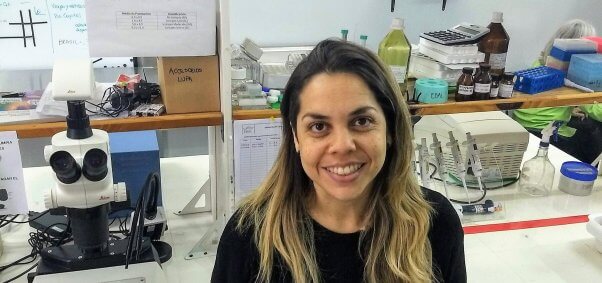Young Researcher Wins PETA International Science Consortium Award
Update: February 26, 2019
Award winner Dr. María Laura Gutiérrez’s trip to the prestigious Institute for In Vitro Sciences (IIVS) Practical Methods for In Vitro Toxicology Workshop has come and gone. She learned about new, innovative ways to prevent animals from suffering and dying in laboratories that will serve her well into the future.
“The opportunity to talk with professionals who have extensive experience in the field about the successes and difficulties that we’re having in Argentina with incorporating in vitro methods has undoubtedly been the most productive part of my visit to IIVS,” Gutiérrez says. “The course gave me many reasons to continue working hard on the incorporation and development of new alternatives to animal testing methodologies.”
Read more about Gutiérrez and the IIVS below.
Originally published November 6, 2018.
Innovative young scientists are ending the use of animals in experiments, and the PETA International Science Consortium Ltd. recognizes these promising early-career researchers for their achievements and helps provide the training opportunities and support that they need.
Today, we’re pleased to announce that Dr. María Laura Gutiérrez, a researcher for the National Scientific and Technical Research Council in Buenos Aires, Argentina, has won the Consortium’s Early-Career Scientist Award, which provides travel funding and a scholarship to attend the prestigious Institute for In Vitro Sciences (IIVS) Practical Methods for In Vitro Toxicology Workshop in January. At the four-day workshop, she will learn from experts about animal-free toxicology tests and get hands-on laboratory experience in applying those methods to her field.

In her role with the National Scientific and Technical Research Council, Dr. Gutiérrez and a team of other scientists are working to implement non-animal methods to test cosmetics, pesticides, and household products. These methods will replace animal tests, including those in which harmful chemicals are smeared onto rabbits’ skin or into their eyes. The award will help her achieve her goal of establishing the first laboratory in Argentina dedicated to conducting and promoting non-animal toxicology tests.

Dr. Gutiérrez is the second recipient of the Consortium’s award to attend the IIVS workshop. In addition to offering awards like these for early-career scientists to attend important workshops and conferences, the Consortium also provides free educational materials on non-animal testing strategies, including factsheets, tutorials, webinars, and videos.
PETA and the Consortium send a hearty and well-deserved congratulations to Dr. Gutiérrez!

